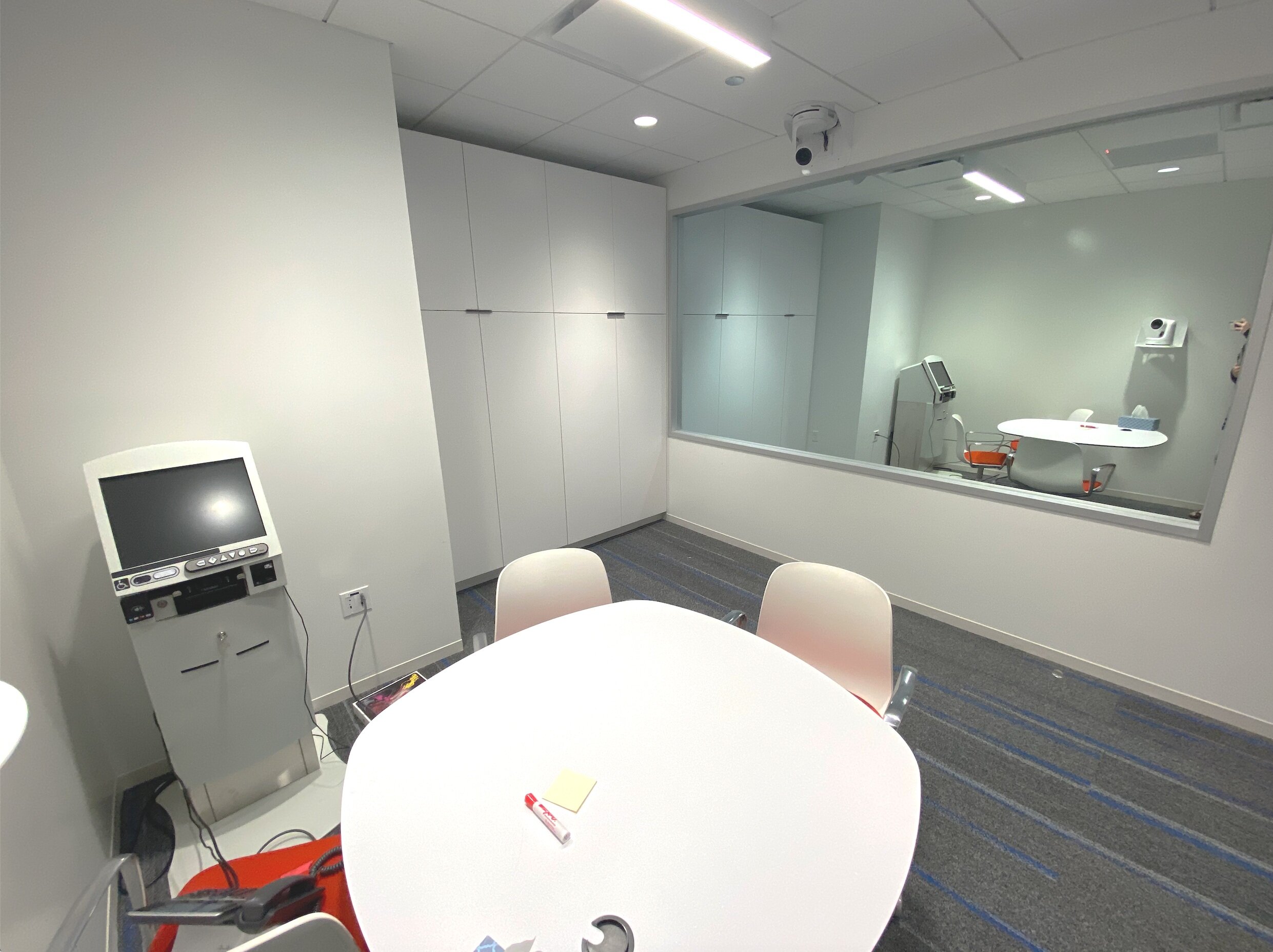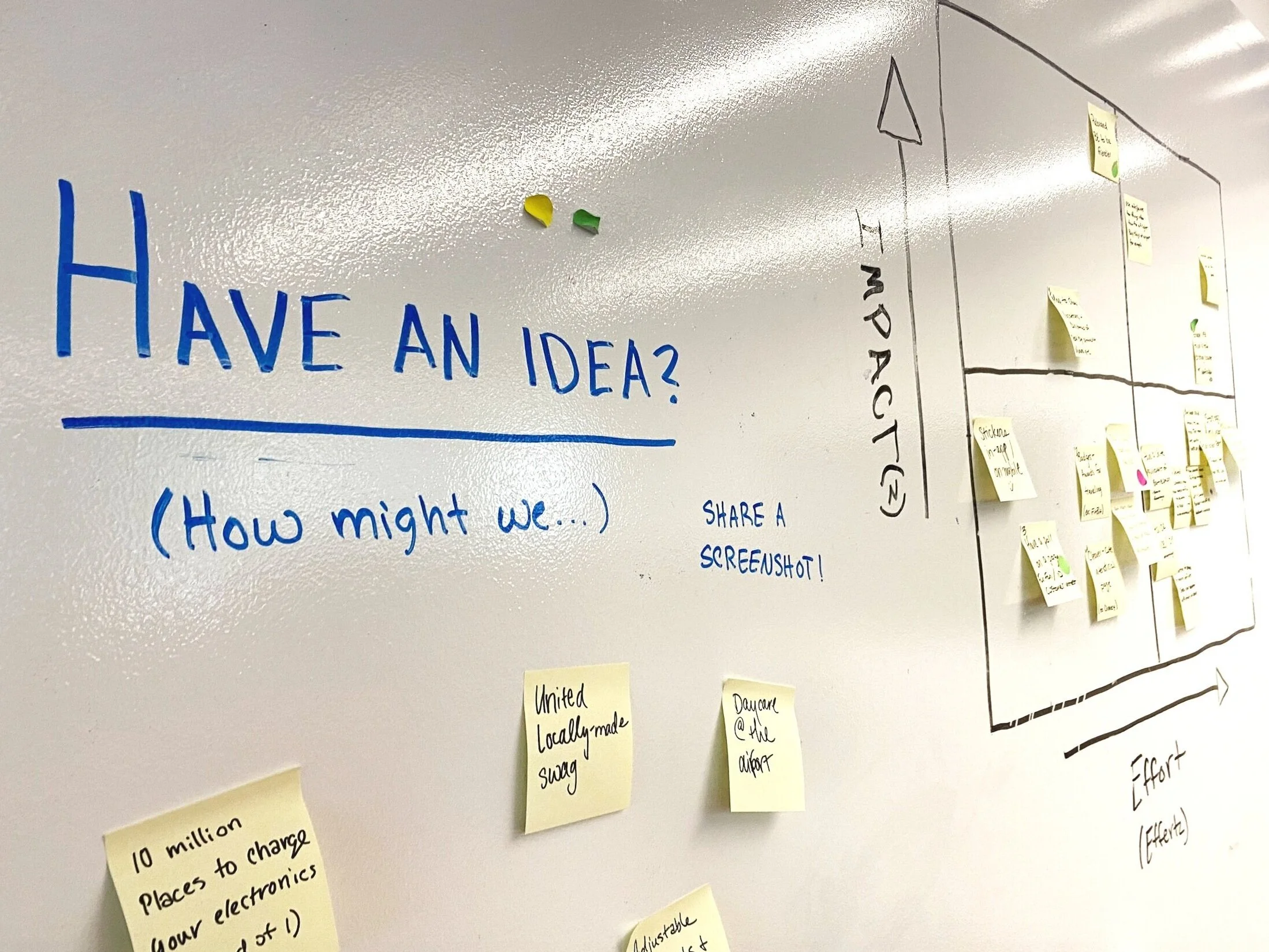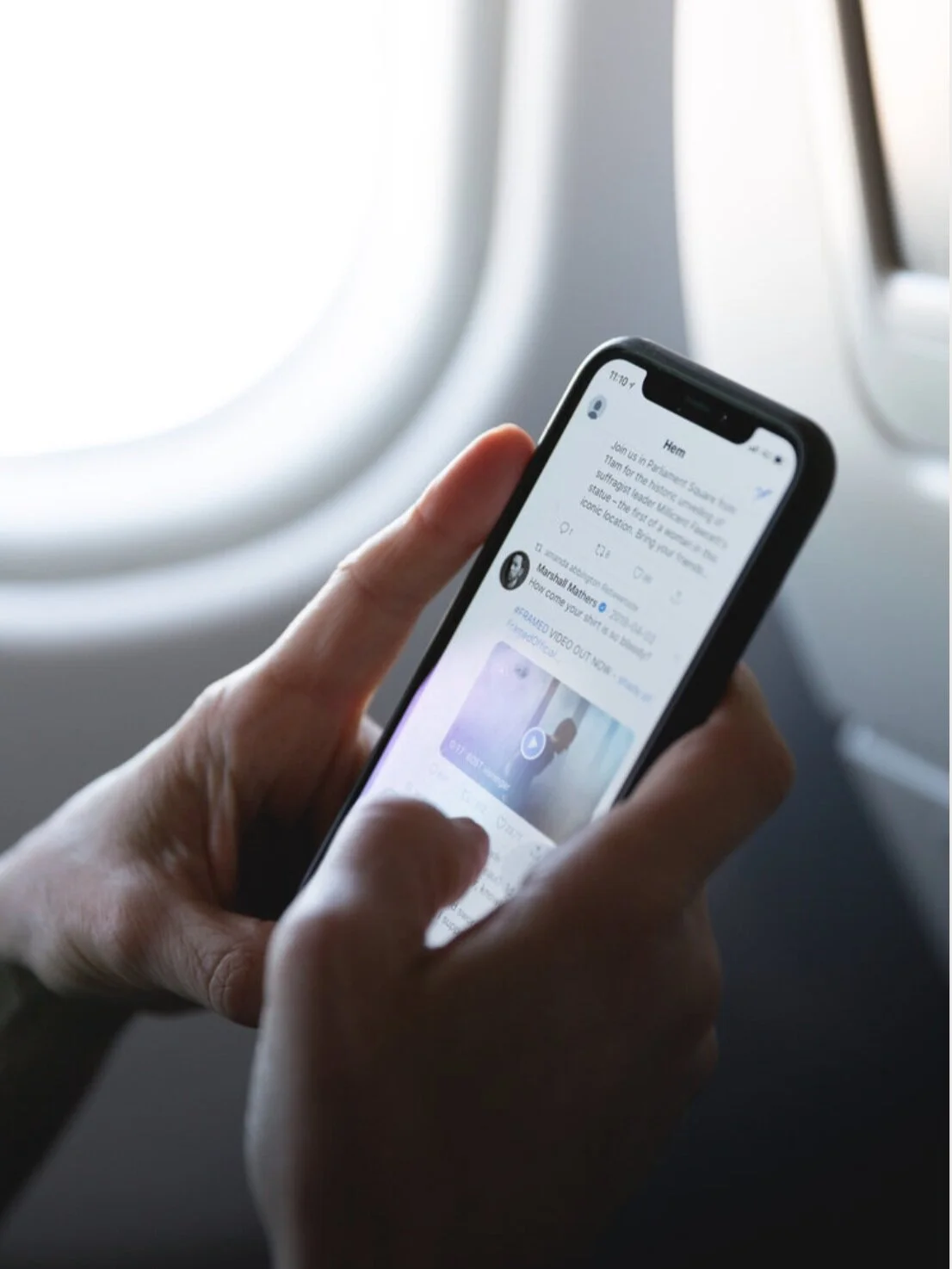
My experience
I have worked as a consultant and in-house in a variety of organizations, including a fortune 500 company. I learned an incredible amount working on both sides of the house. As a consultant at GfK (now IPSOS) I was able to work for companies across all industries and around the world, testing digital and physical products as well as instructional materials. I executed all roles of research including creating test plans, note taking, moderating and leading research teams.
When I transitioned in-house to United Airlines, I was able to impact and shape long term product strategies. The airline industry offers a unique opportunity to work on projects that intersect digital products, physical products, and experiences. Our research team was small with anywhere from 2-4 researchers for all customer facing products, so we often executed entire research initiatives independently, collaborating with UX design teams and business stakeholders on outcomes and next steps. One of my biggest accomplishments on this team was leading the UX research work for the redesigned mobile app, working with thousands of users to provide insight from concept testing to beta and through continuous improvement efforts. As our team model matured, I was also able to mentor junior researchers and take a more strategic role within the UX practice.
Find examples of my past work below.
Please note case studies are from United Airlines as all project work from GFK was under NDA.
Exploritory
Exploratory and foundational research is one of my favorite phases of research because of the amount of ‘ah ha’ moments that come from this research. I love bringing these insights to product teams, innovation groups and leaders to shine light on customer perspectives that have the ability to shift priorities and investments.
Foundational methodologies:
ethnography (in-home, in airport)
design thinking workshops
focus groups
competitive analysis
diary studies
surveys
Iterative
I have the most experience in iterative usability testing across multiple platforms including: native mobile applications, websites, mobile websites, kiosks, tablets, and physical product design. I usually run these studies with prototypes (proto.io, invision) but have also iterated on physical products such as medical devices and instructional materials. One of my favorite projects where we were able to quickly iterate and launch a product was the touchless kiosk, being one of the first to market to help meet customer needs during COVID-19 (see case study below).
Iterative testing methodologies:
remote moderated and unmoderated (usertesting,com, dscout)
in-lab, individual moderated sessions
contextual usability sessions
card sorts, tree tests, click tests
Validation
In an ideal situation I would be able to complete all phases of research from exploratory, iterative and validation, but sometimes timelines only allow for validations studies. In these studies we test the final iteration of a design to ensure there are not any critical usability issues. I often complete a heuristic evaluation and workshop with the designer to provide additional insights, optimizing the design with limited time and resources. I often completed validation studies on digital assets but also have conducted validation studies for medial products (FDA validation).
Validation methodologies:
in-lab, individual moderated sessions
remote moderated and unmoderated (usertesting,com, dscout)
contextual usability sessions
Continuous improvement
Many projects I have worked on involved improving or optimizing existing products. I work with stakeholders and product teams to understand the current performance and past research. I enjoy working on continuous improvement projects because they often lead to exploratory research beyond small optimization opportunities.
CI methodologies:
journey/process mapping
analytic analysis
baseline studies
competitive analysis
heuristic evaluations
accessibility audits
Research project samples:
Pulse of the Traveler
COVID-19 foundational research
(March - June 2020)
Multi round exploratory research initiative to inform product teams, business stakeholder and leadership of the changing needs of our customers during this unprecedented time.
Responsive web Check-in redesign
Exploratory, iterative and validation research
(January - March 2019)
The Check-in product team was asked to redesign United’s web check-in experience into an improved responsive platform. Over 58 million people check in with United every year, and this platform serves 18% of those check-ins on desktops, tablets and mobile devices.
Gamification product, Mile Play (mobile app)
Continuous improvement quant and qual analysis
(November 2019)
United Airlines has a product called Mile Play, a personalized offer that incorporates gamification. The product team came to the UX research and design team to improve and optimize the usability of the product. I collaborated with the designer and marketing analytics team to conduct quant and qual research, providing comprehensive recommendations for improvements and roadmap strategy.
Boarding pass refresh
Iterative mobile app usability testing
(April 2019)
During a rebranding and design system implementation, the check-in/flight status product team was asked to refresh the boarding pass to meet these standards and provide UX/UI improvements. This case study focuses on the research initiatives I led during the first part of the redesign, mobile app.







